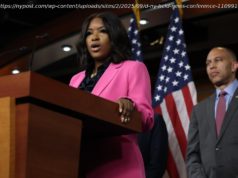We have data.
I t’s been one week since Christine Blasey Ford and Supreme Court nominee Brett Kavanaugh testified before the Senate Judiciary Committee about Ford’s sexual assault allegations against Kavanaugh. Since the hearings, several polls have been fielded and published. So I gathered some non-partisan polls and tried to see how public opinion has changed in the last week:
No Clear Trend in Support for Kavanaugh, but Opposition Seems to Have Increased
Quinnipiac University, a high-quality pollster, has asked respondents whether they think the Senate should confirm Kavanaugh four times over the last four months. There’s no clear trend in Kavanaugh’s yes/confirm numbers (“yes” was at 40 percent in late July, 44 percent in mid-August, 41 percent in September and 42 percent in their latest poll). But percentage who don’t want Kavanaugh confirmed seems to have increased. In early September, 42 percent of respondents said Kavanaugh shouldn’t be confirmed, but in the latest poll (after Ford’s and Kavanaugh’s hearings) 48 percent said no.
The message from the Reuters/Ipsos data is similar. You can see a little bit of change in support for Kavanaugh, but his negative numbers have increased more clearly.
The polls produced by Politico /Morning Consult tell a similar story. They find that opposition to Kavanaugh increased after Ford’s initial interview with the Washington Post was published, and that opposition has ticked up again after the latest hearings. Kavanaugh’s numbers inched up slightly in the latest Morning Consult poll, but overall there isn’t a clear trend in the percentage who want him to be confirmed.
A CBS News/YouGov poll also showed an increase in opposition to Kavanaugh (from 30 percent to 37 percent of Americans saying the Senate shouldn’t confirm him) between their two latest polls. YouGov found a slight decrease in support for Kavanaugh’s support in that interval. And a Huffington Post/YouGov poll found that the hearings did little to change overall opinions on Kavanaugh’s nomination.
The trend in the Economist/YouGov polls suggests that opposition Kavanaugh’s confirmation increased both in the run-up to the hearings and continued to rise afterward. The trend on support for Kavanaugh was murkier.
This overall pattern wasn’t as clear everywhere. Gallup found that Kavanaugh’s net support increased in its last poll. And a Huffington Post/YouGov poll found that the hearings did little to change overall opinions on Kavanaugh’s nomination. The latest NPR/Marist poll saw an increase in opposition to Kavanaugh, but it also saw a slight increase in support for his nomination.
Taken together, these polls suggest that support for Kavanaugh hasn’t moved much, but that opposition not him may have increased.
So Does This Mean Anything for the Midterms?
I would be cautious about any attempt to simply tag Kavanaugh’s recent hearing (or his nomination to the court more generally) as a “win” or a “plus” for Republicans or Democrats in the upcoming midterms.
Midterms are complicated: They involve multiple interlocking parts (e.g. how bad turnout is for the president’s party, how good it is for the party that doesn’t control the White House, how much or little a specific issue moves public opinion beyond where it already is). And so far it’s not clear exactly how these factors add up.
Moreover, we’re still in the middle of this event. I could easily come up with arguments about why the Kavanaugh nomination will help the GOP (e.g. this process will end in confirmation for Kavanaugh, giving Republicans a win and charging up the base right before a midterm) or why it would help the Democrats (e.g. making unpopular moves has taken a toll on Trump’s and the GOP’s polling numbers in the past, and pushing Kavanaugh through would have the same effect). But those arguments would all be based on what we know right now. It’s unsatisfying, but the best way to think about these effects is to keep an eye on presidential approval, the generic ballot, and the actual events as they play out.






